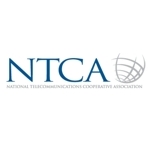 The National Telecommunications Cooperative Association has asked the Federal Communications Commission to conduct a public workshop and to issue a policy statement on call routing and termination problems in rural America.
The National Telecommunications Cooperative Association has asked the Federal Communications Commission to conduct a public workshop and to issue a policy statement on call routing and termination problems in rural America.
“This issue is a nationwide and industry-wide epidemic that compromises the integrity and reliability of the public switched telephone network and directly and adversely affects the personal safety and financial well-being of rural Americans,” wrote NTCA chief Shirley Bloomfield in a letter sent to the FCC on Tuesday.
She added that “After a few months of temporary improvement in some quarters, call routing and termination problems appear to be increasing once again, and we are no closer to identifying and resolving permanently their causes.”
The call completion problem appears to have resulted from long-distance carriers, or their underlying routers, attempting to minimize terminating access charge costs by simply failing to complete calls to rural areas where terminating access charges are the highest. In a recent filing with the FCC, rural telcos pointed to a “frequently asked question” section of the MagicJack web site stating that the company does not complete calls to certain “cost prohibitive areas.”
For several years now, rural carriers have complained that they are sometimes unable to bill long-distance carriers for calls completed to rural customers because the calls come in without appropriate billing information. Because the FCC has indicated that it plans to crack down on long-distance carriers that use such tactics, some of those carriers appear to have opted to simply avoid completing calls to areas with high access charges.
The NTCA, along with other rural telco associations, first raised concerns that calls were not being completed to rural areas back in March. At that time, the FCC told the associations to gather more data to illustrate the problem, which they did—submitting another letter to the FCC in June.
The June letter summarized the results of a survey of rural telco members of the NTCA, the National Exchange Carrier Association, the Organization for the Promotion and Advancement of Small Telecommunications Companies and the Western Telecommunications Alliance. For the month of March 2011, rural carriers reported 1800 problem calls, up from 1200 one month earlier.
The majority of problems—53%–involved calls not being able to go through. Other problems included delayed ringing at the receiving end, inaccurate or unintelligible caller ID and inaccurate or misleading interception messages.
Since then, the rural telco associations also have gained support from the National Association of Regulatory Utility Commissioners, which also has become concerned about the problem.
The NTCA argued in Tuesday’s letter that rural carriers will not be able to solve this problem on their own—in part because retail long-distance carriers can argue that the problem is with their underlying router, while the underlying router argues that the problem is with the retail carrier. The letter asks the FCC to affirm that the legal obligation for call completion rests with the retail provider.
The letter adds, however, that such a statement from the FCC “should not be considered a substitute for a workshop in which the commission and all interested and involved stakeholders can discuss and debate these issues in a public forum to facilitate industry-wide resolution.” Among people that the NTCA asks the FCC to invite to the workshop are technical personnel from RLECs and access tandem providers, as well as retail long-distance providers and the underlying routers they use.
It shouldn’t be difficult to determine which retail providers to invite. According to the research presented by the rural telco associations in June, the associations know the identity of the retail providers with whom telcos are having the greatest call completion problems–although those identities were not made public at that time.
A workshop seems like a good idea. The FCC previously conducted a series of workshops leading up to Universal Service reform, which were quite helpful in illuminating and in some cases even resolving key issues.

